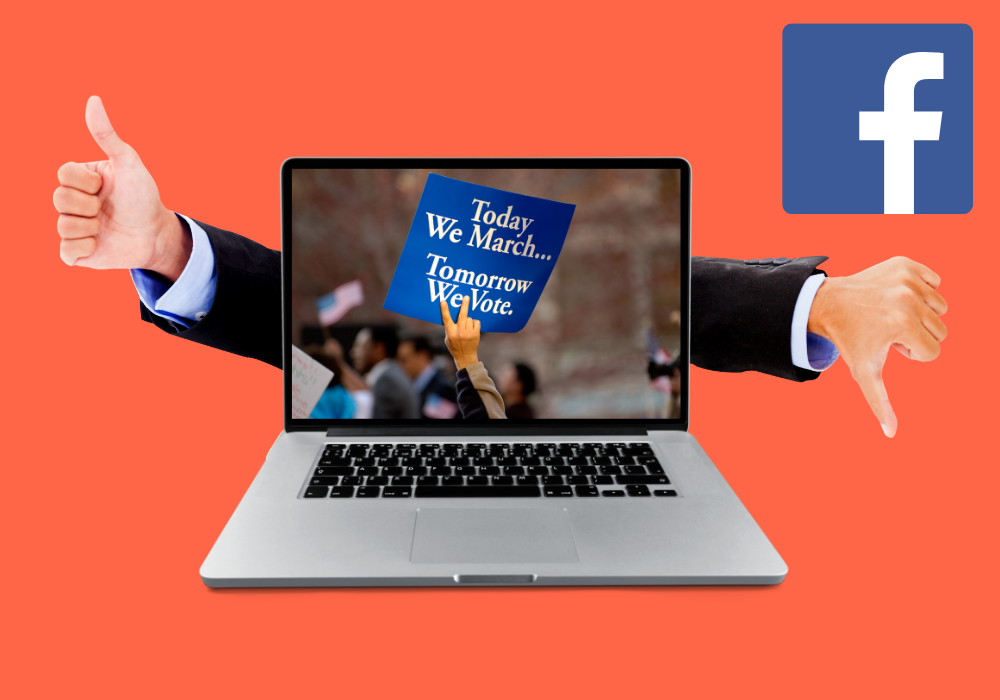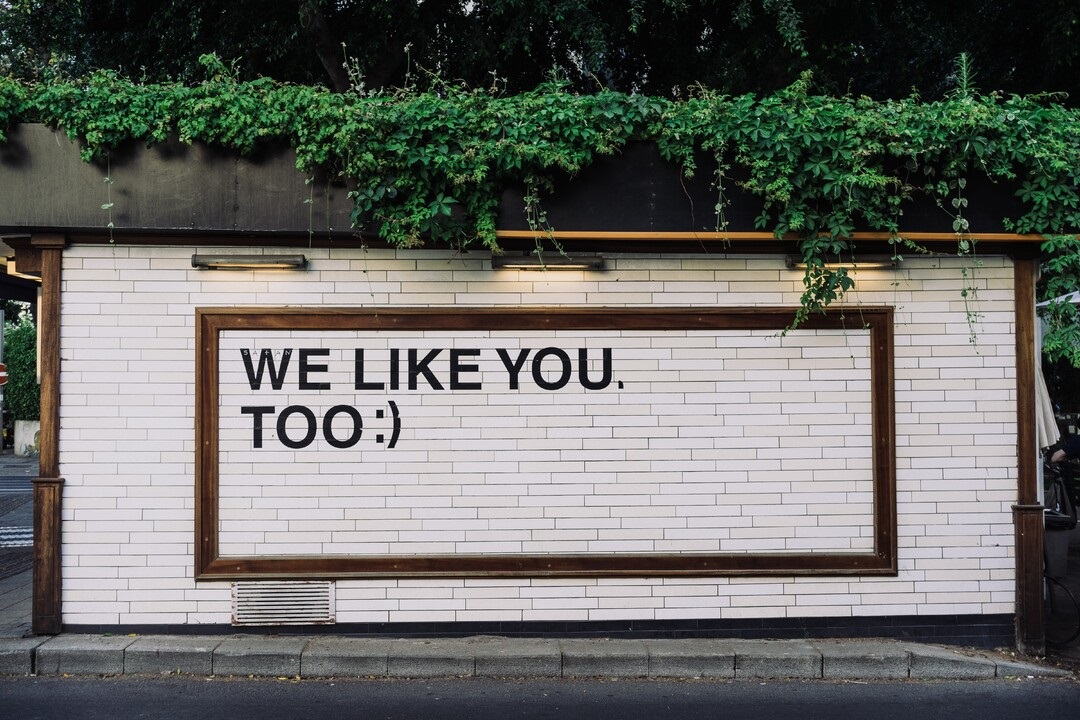
Why Has Facebook Banned Political Ads?
Unless you’ve had your head in the sand for the last few years you’ll know that Facebook has had a significant role to play in recent political events. And as a Facebook marketer, you may have noticed that your ads are getting blocked, accompanied by this message:But why has Facebook banned political ads? What has brought about this decision, and what are you allowed to promote now?How will this recent change impact your own Facebook ad campaigns?
What Has Facebook Banned?
As we’ve already mentioned, Facebook has recently changed its policy on ‘political’ ads. This includes any ads that reference politics (obviously), elections, or even social issues in general.But what does this actually involve? What will you be allowed to post and promote, and what will see yourmeticulously designed adstopped at the first hurdle?Well, we can answer this last question for you immediately. The ads that won’t be flying straight onto your target audiences’ newsfeed are:
- Any ads that are made on behalf of politicians or political groups.
- Ads about elections, referendums or any other national ballots.
- Ads about social issues specific to the location where the ad is being run.
- And whatever else Facebook deems political, whether you like it or not.
Now, this doesn’t mean you can’t advertise about political matters at all, you just need to go through a verification process and follow some guidelines on your ad, which we’ll outline later in the blog.To make it a little clearer to you as to what kind of ads you’re allowed to promote, let’s think of some examples you might use that could be flagged up by the newly self-righteous Facebook.You’re simply promoting a blog todrive traffic to your site. Completely fair, right? You’re not even selling anything. It’s a simple case of giving your users the opportunity to be inspired, entertained and intellectually enriched by yourground-breaking content.Your business specialises in the car industry, nothing to do with politics. But in your description or your title, you’ve mentioned the impact Brexit will have on your manufacturing costs as a way to hook your users.Facebook will regard this as a political post, and you’ll have to go looking for approval in order to get it in front of your audience.And obviously, if you try and post anything that actually supports a politician or a party, ‘Den’s Car Dealer Supports Bernie Sanders’ for example, then that’s clearly going to be a one-way ticket to the unapproved step.But let’s say you really, really want your ad to get out. The public deserve to see your blog, and they must realise your position on the left of US politics.There are, helpfully, a few guidelines you need to follow to ensure your ads get shown. However, before we start focusing on them, it’s useful to know exactly why Facebook has had to take this step in the first place.
Why Has the Ban Happened?
Facebook is the biggest database of highly detailed personal profiles in existence. For this reason, as you know, it’s a supremely powerful marketing tool.There is no other way to target ads at such a large, but most importantly specific, audience. For this reason, it’s an incredibly effective platform for reaching a very specific group of people with very specific messages.So, if you were, say, hell-bent on influencing the way ordinary people voted in an upcoming election, Facebook could be a really useful platform for you. In a hypothetical scenario of course.
In this hypothetical scenario, you might prey on people’s hopes and fears by targeting extremely tailored ads at them. An undecided voter that worries about their small, isolated community could be shown ads that tap into immigration fears.Swing voters, perhaps parents, in an area plagued by gun crime could be convinced by ads specifically targeting gun laws and their concerns for their children.I’m sure you can see how someone might, conceivably, manipulate a huge number of people if they had the nous or the resources to do so.But of course, this isn’t a hypothetical situation. Two landmark events that showed, categorically, that a population could be swung by social media campaigners. These were the EU Referendum and the US election, both in 2016.It was proven, only after the respective results of course, that some groups (Cambridge Analytica, the Internet Research Agency, etc.) had a pretty large hand to play in influencing how the nations voted.When this all came out, the backlash on Facebook was huge. After an extensive inquest, over $100 billion lost in stocks and another recent $5 billion dollar fine, it was common knowledge that the platform could harvest and store the data of millions of people. And not only that, but groups could access this data and use it to their own ends.So, Facebook clearly had to react. They had to let users have more control over their data and make more of an effort to educate people on how their data is handled. They had to address the way they verified any ads that could, potentially, influence political matters.
What Effect Will This Ban Have on You?
So down to what you, as a Facebook marketer, are actually interested in. Facebook have banned political ads, but how will it actually impact you?
If your ads have never, and most likely will never, mention anything to with politics at all, then it’s business as usual. Your ads that promote a non-politically affiliated trainers won’t be flagged up in the Facebook ad authorisation process any time soon.
Similarly, if you’re promoting free content on Facebook that has no mention of nuclear disarmament, fixed elections or revolting populations, you will also be free to carry on as normal.You would be surprised however, at just how many ads are blocked by this new ruling. It can be frustrating, especially when you’re only trying to engage your audience, not insidiously convert them into Trump supporters, when your ad achieves a really low reach because it hasn’t been approved.In fact, this very blog post will most likely end up restricted by Facebook due to the fact that it clearly focuses on political ads.Facebook has obviously had to become pretty strict on what it will allow to slip through the gaps, so even tenuous links to anything remotely political will seeyour ad classed as restricted.So what can you do to get your ads running? It’s a bit of a process, but if this issue is proving problematic to your advertising efforts, it’s well worth going through.
Getting Your Facebook Ads Out There
So, you’ve worked hard on your creative, you’ve spent hours meticulously perfecting your targeting, you’re ready to engage with your audience and drive thousands of conversions.Then, just as you set your ad to go live and appear in the feeds of your target audience, you’re slapped with the unauthorised tag.What’s the first step?Well, the first thing you’ll need to do is read the platform requirements for the specific country you reside in. For example, social issues range from country to country, so you need to know what is actually allowed.
In the US there are 20 topics that fall under the ‘social issues’ remit, whereas only 6 subjects make up the social issues list for the EU. You can view the specific lists for social issues based on location here.
Then you need to set up authorisation for your page to run political ads. Again, this process varies from country to country, but we’ll outline the essential steps you need to take so that you’ll have a good idea of how to go about getting your ads out there.
Step 1: Confirm your identity
Before you start the authorisation process, you will need to comply with these requirements – you must:
-
- Be Page admin.
- Have two-factor authentication set up for your Facebook account.
- Be based in the country you’re advertising to.
- Have a UK-based residential address and a suitable form of UK ID. (If you were running the ad in the UK).
Then, you need to confirm your identity. Here are the exact steps you need to follow to do this, as described by Facebook:
- Go to your Facebook page through Business Manager.
- Click ‘Settings’ in the top right-hand corner.
- In the list that appears on the left, click ‘Authorisations’.
- In the ‘Where do you live?’ section, select the relevant country.
- Below step 1: Confirm your identity, click ‘Get Started’.
- In the ‘Confirm your primary country location’ section, click ‘Confirm primary location’.
- In the ‘Enter postal address’ section, fill in all the required fields, then click ‘Next’.
- Select the type of ID you’d like to use. What is deemed acceptable will vary by country.
- Upload an image of your ID and click ‘Next’.
- Enter your postcode and click ‘Submit’.
You should then be sent a letter with a unique verification code. When the letter arrives, visit the URL it specifies and in the ‘Confirm your identity’ section of the page, enter your code.And that’s just step one.
Step 2: Link your ad accounts
Okay, so now Facebook knows that you are you, which is a result. Yes, this all seems very long-winded and stringent, but Facebook probably want to avoid any more multi-billion-dollar fines.The next step is to link your ad accounts to your Page and set up your disclaimers. So, here’s another fun list of instructions:
- Go to your Facebook page through Business Manager.
- Click ‘Settings’ in the top right-hand corner.
- In the list that appears on the left, click ‘Authorisations’.
- Below step 2: Link your ad accounts, click Begin.
- Agree to comply with Facebook’s Terms and Conditions.
- The ad accounts that you are an ad account advertiser on admin on will appear automatically, so that you can select the ones that will pay for your political ads posted by your page.
- Each ad by your page needs a ‘Paid for by’ disclaimer, which means we can skip merrily on to the next step.
Step 3: Your Ad Disclaimers
This disclaimer will appear at the top of your ad, to prove to users that this ad hasn’t been released by the KGB or some shady, faceless corporation.And guess what? We’ve got some more guidelines to follow. So, here they are. Your disclaimer must not:
- Include profanity, objectionable language, and it needs to make sense.
- Include URLs or acronyms unless they are absolutely necessary for making up the full official name of the responsible party.
- Imply that your ads are paid for by, with or on behalf of Facebook.
- Wrongfully imply that a foreign leader has paid for the ad.
- Include ‘Paid for by’ language that duplicates the same language provided by Facebook.
And must:
- Accurately represent the name of the person or entity responsible for the ad.
Of course, bear in mind that your users are all going to see this disclaimer, so our advice would be to keep it short and sweet. Just the essential information is all that’s needed.If you get your disclaimer approved, then, finally, you’re away. You are free to run your ads with tenuous links to social issues or bring your revolutionary message to the disenfranchised masses.
Next Read- Will AI Take Your Marketing Job?
Follow us on Instagram for blog updates – Instagram, Filed AI



